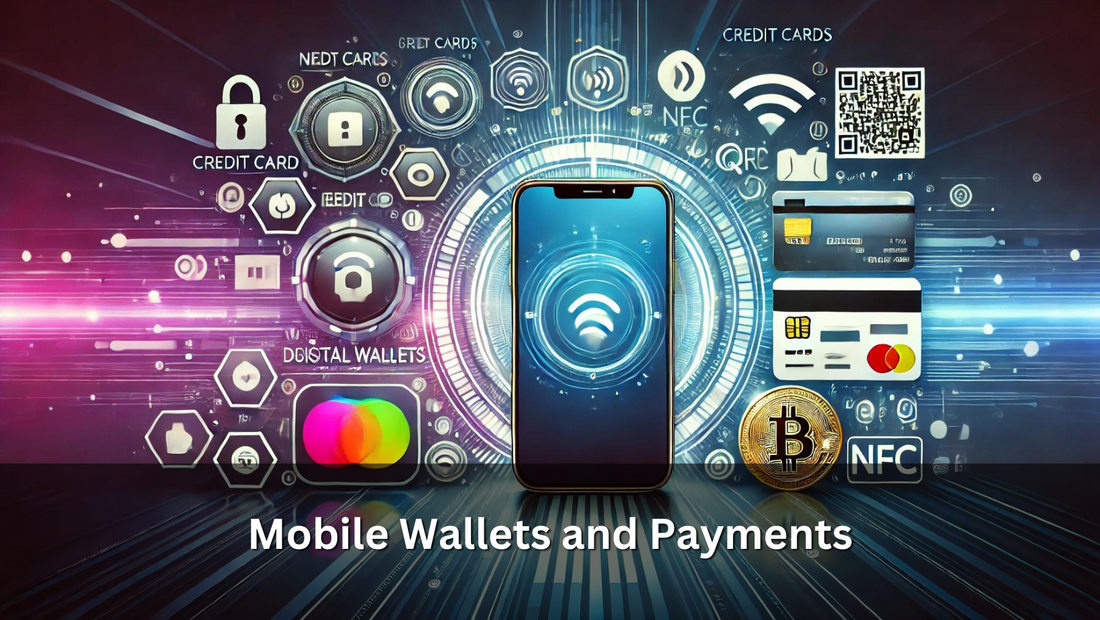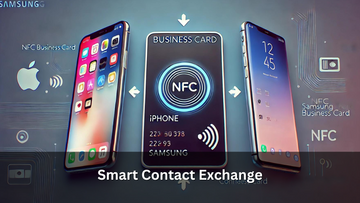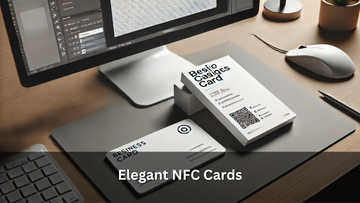Mobile Wallets and Payments

Introduction to Mobile Wallets
Mobile wallets have revolutionized the way we handle transactions, offering a convenient and secure alternative to traditional payment methods. These digital wallets store payment information on a smartphone, allowing users to make purchases with just a tap or a scan. With the rise of contactless payments, mobile wallets have become increasingly popular, providing users with a seamless and efficient way to manage their finances. From buying groceries to paying for public transportation, mobile wallets are transforming everyday transactions and paving the way for a cashless future.

How NFC Technology Works
Near Field Communication (NFC) technology enables wireless data transfer over short distances, typically a few centimeters. This technology is at the core of many mobile wallet transactions. When an NFC-enabled device, such as a smartphone, is brought close to an NFC terminal, it initiates a secure communication link. The device sends encrypted payment information to the terminal, completing the transaction in seconds. NFC technology's simplicity and security have made it a popular choice for contactless payments. Its ability to transfer data quickly and safely without physical contact is revolutionizing how we make everyday purchases.
QR Codes in Mobile Payments
QR codes have become a versatile tool in mobile payments, offering a straightforward and accessible method for transactions. These codes can store various types of information, including payment details. When a user scans a QR code with their smartphone, the embedded information is quickly decoded and processed, allowing for instant payment. This technology is especially popular in regions where NFC infrastructure is less developed. QR codes provide a cost-effective and easy-to-implement solution for businesses and consumers alike. Their widespread adoption is driven by their simplicity, security, and ability to facilitate seamless transactions without the need for physical contact.
Businesses can further enhance their customer experience by incorporating QR codes into innovative products. For example, the Smart Table Talker allows restaurants and cafes to print their QR codes directly onto table talkers, enabling customers to access menus, make payments, and leave reviews effortlessly. Additionally, customized QR code solutions like custom NFC stickers and customized ID digital cards offer businesses unique ways to integrate QR codes into their branding and operations. These products not only streamline transactions but also enhance marketing efforts and customer engagement, making QR codes an indispensable tool in the modern digital economy.
Advantages of Using Mobile Wallets
Mobile wallets offer numerous advantages that make them an attractive option for consumers and businesses. Firstly, they provide unmatched convenience; users can make quick payments without carrying physical cash or cards. Secondly, mobile wallets enhance security through encryption and biometric authentication, reducing the risk of fraud and theft. Additionally, they streamline the transaction process, allowing for faster checkouts and improved customer experience. Mobile wallets also facilitate easy tracking of spending, helping users manage their finances better. Moreover, many mobile wallets offer rewards and cashback, providing added value to users. These benefits collectively contribute to the growing popularity and adoption of mobile wallets worldwide.

Security Features of Mobile Wallets
Mobile wallets are equipped with robust security features to protect users' sensitive information. One of the primary security measures is encryption, which ensures that data transferred during transactions is securely encoded. Additionally, many mobile wallets use biometric authentication, such as fingerprint or facial recognition, to verify the user's identity. Tokenization is another critical feature, replacing sensitive card details with unique tokens during transactions, minimizing the risk of data breaches. These wallets also offer real-time notifications, allowing users to monitor their transactions and quickly detect any suspicious activity. Together, these advanced security features make mobile wallets a safe and reliable choice for digital payments.
Integration of NFC in Retail
The integration of NFC technology in retail has significantly enhanced the shopping experience by offering a versatile and convenient payment option. Retailers can now provide customers with quick and secure tap-to-pay transactions, ideal for busy checkout lines. This technology caters to diverse preferences and improves transaction efficiency, reducing wait times and providing seamless payment experiences.
NFC technology allows retailers to offer a modern, contactless payment method that is both secure and efficient. Products such as Smart Table Talker and custom NFC stickers enable businesses to integrate NFC into their operations effortlessly. For instance, Smart Table Talkers in restaurants can provide a contactless way for customers to access menus, make payments, and leave reviews. Customized NFC stickers and customized ID digital cards can be used to enhance brand interaction by linking directly to payment gateways or online platforms, simplifying the transaction process.
Moreover, retailers can utilize customized colored PVC digital cards to trigger payment links for online transactions, making the payment process even more seamless. This dual approach not only streamlines the payment process but also enhances customer satisfaction by providing multiple, flexible payment options. As a result, the adoption of NFC in retail continues to grow, driving the future of contactless payments.
Comparison Between NFC and QR Code Payments
NFC (Near Field Communication) and QR code payments are two popular methods for contactless transactions, each with its unique advantages. NFC payments are known for their speed and security, allowing users to complete transactions with a simple tap of their smartphone. This method requires NFC-enabled devices and terminals, making it ideal for established retail environments. Conversely, QR code payments offer greater flexibility and accessibility, as they only require a smartphone camera to scan the code. This makes QR codes particularly useful in smaller businesses and markets where NFC infrastructure may be lacking. While NFC excels in convenience and security, QR codes provide a cost-effective and widely compatible solution, catering to diverse payment scenarios.

Future Trends in Mobile Payments
The future of mobile payments is poised for significant advancements driven by evolving technology and consumer demand. One emerging trend is the increased use of biometric authentication, enhancing security and streamlining the payment process. Additionally, the integration of artificial intelligence and machine learning will offer personalized payment experiences and advanced fraud detection. The adoption of cryptocurrencies for everyday transactions is also expected to grow, providing users with more diverse payment options. Furthermore, the expansion of mobile payment infrastructure in developing regions will drive global usage. These trends indicate a shift towards more secure, efficient, and inclusive mobile payment solutions in the coming years.
We at NFC Tagify provide all sort of NFC Solutions or you may contact us: Tel. 01600800080, Email: info@nfctagify.com








